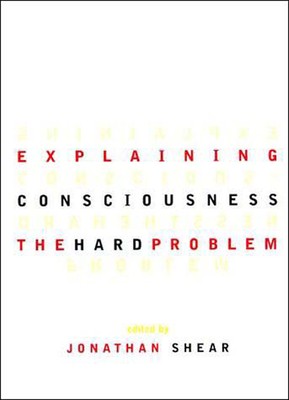
- We will send in 10–14 business days.
- Publisher: MIT Press
- ISBN-10: 026269221X
- ISBN-13: 9780262692212
- Format: 17.8 x 25 x 2.3 cm, softcover
- Language: English
- SAVE -10% with code: EXTRA
Explaining Consciousness (e-book) (used book) | bookbook.eu
Reviews
Description
Why doesn't all this cognitive processing go on "in the dark," without any consciousness at all? In this book philosophers, physicists, psychologists, neurophysiologists, computer scientists, and others address this central topic in the growing discipline of consciousness studies.At the 1994 landmark conference "Toward a Scientific Basis for Consciousness", philosopher David Chalmers distinguished between the "easy" problems and the "hard" problem of consciousness research. According to Chalmers, the easy problems are to explain cognitive functions such as discrimination, integration, and the control of behavior; the hard problem is to explain why these functions should be associated with phenomenal experience. Why doesnt all this cognitive processing go on "in the dark", without any consciousness at all? In this book, philosophers, physicists, psychologists, neurophysiologists, computer scientists, and others address this central topic in the growing discipline of consciousness studies. Some take issue with Chalmers' distinction, arguing that the hard problem is a non-problem, or that the explanatory gap is too wide to be bridged. Others offer alternative suggestions as to how the problem might be solved, whether through cognitive science, fundamental physics, empirical phenomenology, or with theories that take consciousness as irreducible.
Contributors
Bernard J. Baars, Douglas J. Bilodeau, David Chalmers, Patricia S. Churchland, Thomas Clark, C. J. S. Clarke, Francis Crick, Daniel C. Dennett, Stuart Hameroff, Valerie Hardcastle, David Hodgson, Piet Hut, Christof Koch, Benjamin Libet, E. J. Lowe, Bruce MacLennan, Colin McGinn, Eugene Mills, Kieron OHara, Roger Penrose, Mark C. Price, William S. Robinson, Gregg Rosenberg, Tom Scott, William Seager, Jonathan Shear, Roger N. Shepard, Henry Stapp, Francisco J. Varela, Max Velmans, Richard Warner
EXTRA 10 % discount with code: EXTRA
The promotion ends in 20d.05:04:25
The discount code is valid when purchasing from 10 €. Discounts do not stack.
- Publisher: MIT Press
- ISBN-10: 026269221X
- ISBN-13: 9780262692212
- Format: 17.8 x 25 x 2.3 cm, softcover
- Language: English English
At the 1994 landmark conference "Toward a Scientific Basis for Consciousness", philosopher David Chalmers distinguished between the "easy" problems and the "hard" problem of consciousness research. According to Chalmers, the easy problems are to explain cognitive functions such as discrimination, integration, and the control of behavior; the hard problem is to explain why these functions should be associated with phenomenal experience. Why doesnt all this cognitive processing go on "in the dark", without any consciousness at all? In this book, philosophers, physicists, psychologists, neurophysiologists, computer scientists, and others address this central topic in the growing discipline of consciousness studies. Some take issue with Chalmers' distinction, arguing that the hard problem is a non-problem, or that the explanatory gap is too wide to be bridged. Others offer alternative suggestions as to how the problem might be solved, whether through cognitive science, fundamental physics, empirical phenomenology, or with theories that take consciousness as irreducible.
Contributors
Bernard J. Baars, Douglas J. Bilodeau, David Chalmers, Patricia S. Churchland, Thomas Clark, C. J. S. Clarke, Francis Crick, Daniel C. Dennett, Stuart Hameroff, Valerie Hardcastle, David Hodgson, Piet Hut, Christof Koch, Benjamin Libet, E. J. Lowe, Bruce MacLennan, Colin McGinn, Eugene Mills, Kieron OHara, Roger Penrose, Mark C. Price, William S. Robinson, Gregg Rosenberg, Tom Scott, William Seager, Jonathan Shear, Roger N. Shepard, Henry Stapp, Francisco J. Varela, Max Velmans, Richard Warner


Reviews